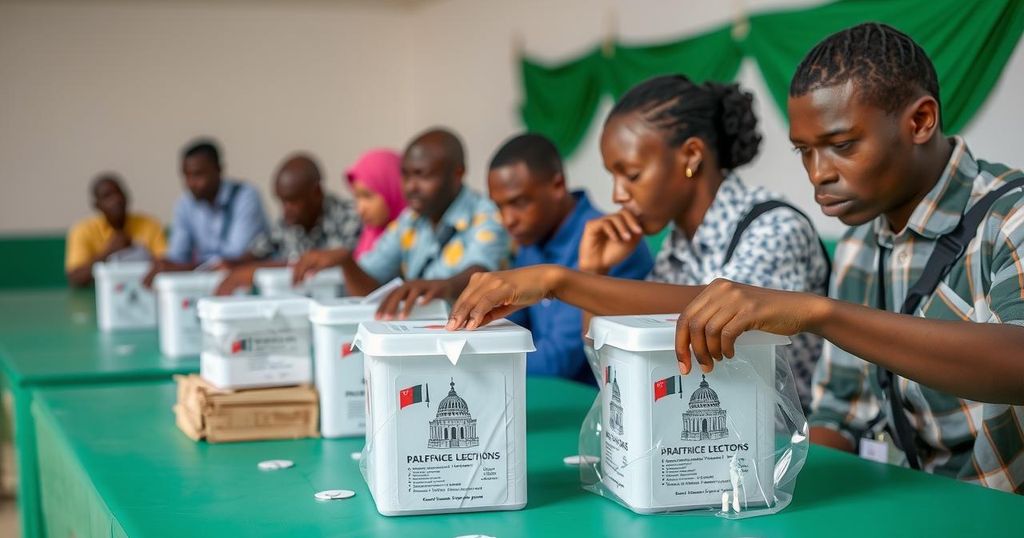Parliamentary Elections in Comoros Amid Controversy and Allegations of Authoritarianism

Comorian voters are casting their ballots in parliamentary elections for the 33-seat assembly amid allegations of President Azali Assoumani’s authoritarianism. Despite calls for a boycott from some opposition parties, participation remains varied. Nearly 100 candidates are in the race as results are expected by the end of the week.
Voters in Comoros are participating in parliamentary elections for the 33-seat assembly of the Indian Ocean archipelago. This electoral process follows the controversial re-election of President Azali Assoumani, whose tenure has faced allegations of significant irregularities. Polling stations opened early on Sunday with approximately 338,000 registered voters. Nearly 100 candidates have been chosen by the nation’s Supreme Court to vie for the parliamentary seats. The last parliamentary elections in Comoros were held in January 2020.
President Assoumani’s critics express concerns regarding his authoritarian governance, suggesting he is grooming his eldest son, Nour El-Fath, to succeed him upon his term’s conclusion in 2029. Since ascending to power via a coup in 1999, Assoumani has secured re-election three times. Recently, he conferred extensive new powers upon his son, appointing him to oversee all governmental operations starting in 2024.
Some opposition factions, including the Juwa party led by former President Ahmed Abdallah Sambi, who is serving a life sentence since 2022, have urged a boycott of the elections. However, others have opted to participate. Hamidou Karihila, an opposition candidate from the Hope of the Comoros party, articulated a counter perspective, stating, “The Azali regime is weakened … by participating in these elections we are contributing to further exposing the flaws in its system and accelerating its inevitable fall.” The results of the elections are anticipated by Friday.
The political landscape in Comoros has been tumultuous, marked by President Azali Assoumani’s lengthy rule beginning with a coup in 1999. His governance is characterized by frequent accusations of autocratic measures and electoral malfeasance. The political opposition has expressed concerns regarding succession plans that may favor Assoumani’s son, signaling potential dynastic politics. The recent parliamentary elections are critical as they may either reinforce Assoumani’s regime or catalyze shifts in the political dynamics of the nation, especially amidst opposition calls for reform and electoral integrity.
The parliamentary elections in Comoros are pivotal, representing a moment of potential change or continuity in the governance of the archipelago. While President Assoumani’s regime is challenged by allegations of authoritarianism, the decision of various opposition groups to participate or boycott reflects the complexities of the political climate. The outcome of these elections will not only impact the immediate governance of Comoros but may also shape future political developments in the region.
Original Source: www.thesenior.com.au







